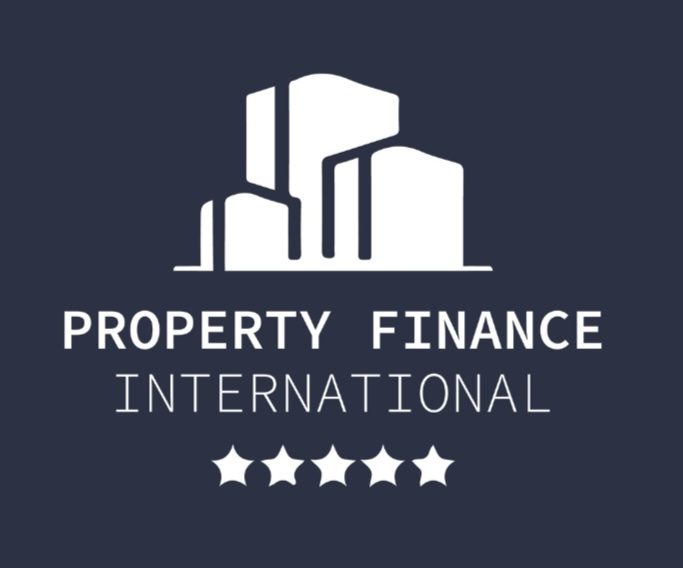Did you know that sustainability is reshaping the way real estate investments are made? With growing awareness of environmental issues and the demand for energy efficiency, investors and financial institutions are increasingly considering sustainability factors when funding property projects. Sustainable property finance integrates environmental, social, and governance (ESG) factors into investment decisions, aiming to promote long-term value creation and mitigate risks associated with climate change. In this article, we will explore how sustainability factors are transforming property finance and enhancing real estate investments in the United States.
Understanding Green Loans in Real Estate Financing
Green loans play a significant role in real estate financing and are gaining popularity in the property finance industry. These loans are specifically designed to finance sustainable and energy-efficient projects, making them an essential tool for property developers and investors looking to incorporate sustainability into their projects.
What Are Green Loans?
Green loans are a type of financing that focuses on environmentally friendly initiatives within the real estate sector. These loans can be used to fund various sustainable projects, such as constructing energy-efficient buildings, implementing renewable energy systems, or improving water and waste management practices.
Benefits of Green Loans for Property Finance
There are several compelling reasons why green loans are beneficial for property finance:
- Favorable terms and rates: Green loans often come with more favorable terms and interest rates compared to traditional financing options. This can help reduce the overall cost of borrowing for property developers.
- Improved reputation and marketability: Sustainable properties are in high demand, and financing a green project can enhance a developer’s reputation and increase the marketability of the property.
- Reduced operational costs: Energy-efficient and sustainable buildings typically have lower operational costs, including reduced energy consumption and maintenance expenses. Green loans can enable property developers to implement these cost-saving measures.
- Alignment with sustainability goals: Green loans align with the growing focus on sustainability and environmental responsibility, enabling property developers and investors to contribute to a greener future.
The Green Loan Principles (GLP) Framework
The Green Loan Principles (GLP) framework provides guidance for green loans and ensures their credibility and transparency. The framework outlines the criteria for project eligibility, requirements for the use of loan proceeds, and reporting obligations. By adhering to the GLP framework, lenders and borrowers can maintain the integrity of green loans and demonstrate their commitment to sustainable development.
| Criteria | Description |
|---|---|
| Project Eligibility | The project must meet specific environmental and sustainability criteria to qualify for a green loan. |
| Use of Loan Proceeds | The loan proceeds must be used exclusively for financing or refinancing green projects that promote environmental sustainability. |
| Reporting Requirements | Borrowers are required to report annually on the use of loan proceeds and provide updates on the project’s environmental impact. |
The Role of Sustainability in Investment Property Loans
When it comes to investment property loans, sustainability factors play a crucial role in the evaluation and decision-making process of lenders. Sustainable investments are those that prioritize reducing environmental impact, promoting energy efficiency, and contributing to positive social outcomes.
Lenders take into account various sustainability factors when assessing loan applications for investment properties. The use of renewable energy sources, green building certifications, and sustainable design principles are some of the key elements that contribute to the attractiveness and value of investment properties.
Investors and lenders alike are increasingly recognizing the long-term value and risk mitigation associated with sustainable properties. By considering sustainability factors in investment property loans, lenders not only align themselves with environmental goals, but also increase the overall marketability and value of the property.
"Sustainable investments demonstrate reduced environmental impact, energy efficiency, and a positive social impact."
Integrating sustainability into investment property loans also reflects the growing awareness and commitment to addressing environmental challenges. It demonstrates a responsible approach to real estate financing, taking into consideration the broader impact on society and the planet.
| Sustainability Factors in Investment Property Loans | Benefits |
|---|---|
| Use of renewable energy | Reduces energy costs and carbon footprint |
| Green building certifications | Enhances property value and marketability |
| Sustainable design principles | Promotes resource efficiency and occupant well-being |
By incorporating sustainability factors into investment property loans, lenders contribute to a more sustainable built environment and support the transition towards a greener future. This approach not only benefits the lenders and investors, but also the communities and ecosystems in which these properties exist.
IFC’s Strategic Commitment to Climate Investments
The International Finance Corporation (IFC), a member of the World Bank Group, has made a strategic commitment to climate investments. IFC aims to allocate a significant portion of its resources to finance projects that support climate mitigation and adaptation. As part of this commitment, IFC has been actively involved in providing green loans for property finance.
IFC’s Experience with Green Loans
IFC has extensive experience in financing sustainable projects across various countries and sectors. With a focus on renewable energy, energy efficiency, and sustainable construction, IFC has successfully financed projects that promote sustainable development and contribute to reducing greenhouse gas emissions. By providing green loans, IFC supports the growth of environmentally friendly real estate investments.
Case Studies: IFC’s Green Loan Portfolios
| Project | Sector | Country |
|---|---|---|
| Green Building Retrofit | Commercial | United States |
| Renewable Energy Installation | Industrial | India |
| Sustainable Affordable Housing | Residential | Brazil |
These case studies represent a small sample of IFC’s diverse green loan portfolios. Each project demonstrates the positive impact of sustainable property finance in creating energy-efficient buildings, reducing carbon footprints, and driving economic growth. Through its commitment to green loans, IFC continues to be a leader in financing sustainable real estate projects.
Impact Reporting and Transparency in Property Portfolio Financing
Impact reporting and transparency play a crucial role in property portfolio financing, particularly in the context of sustainability. As the demand for environmentally friendly and socially responsible investments continues to grow, it is essential for borrowers and lenders to ensure transparency and accountability in the use of funds.
Annual Impact Reports under GLP
Green loans, guided by the Green Loan Principles (GLP) framework, require borrowers to report annually on the use of loan proceeds and select impact indicators. These annual impact reports provide valuable insights into the environmental and social impact of property portfolio financing.
By documenting and analyzing the specific outcomes and achievements of sustainable property investments, these reports enable stakeholders to assess the progress made towards sustainability goals. The impact reports offer an opportunity for borrowers to demonstrate the tangible benefits and positive change resulting from their investments.
Additionally, these reports enable lenders, investors, and other stakeholders to make informed decisions and measure the effectiveness of financing strategies. By understanding the impact of their investments, stakeholders can align their goals and strategies with sustainable practices, fostering greater transparency and enhancing the overall credibility of property portfolio financing.
Transparency and Accountability Factors
In addition to the annual impact reports, transparency and accountability factors are essential to ensure the integrity of property portfolio financing. Third-party reviews are recommended to evaluate the alignment of the loan proceeds with the GLP principles and verify the accuracy and reliability of the impact reports.
These reviews help instill confidence in the accuracy and transparency of the reported impact data, providing assurance to stakeholders. By involving independent parties, lenders and borrowers demonstrate their commitment to accountability and responsible financing practices.
Transparency also extends to the disclosure of relevant information regarding the financing terms, project objectives, and sustainability performance. Clear and comprehensive communication of this information fosters trust and enables stakeholders to make well-informed decisions.
Overall, impact reporting and transparency serve as essential mechanisms for evaluating the environmental and social impact of property portfolio financing. By providing stakeholders with reliable data, fostering accountability, and promoting transparency, these practices support sustainable investments and contribute to the development of a more responsible and resilient real estate industry.
Conclusion
Sustainability is revolutionizing property finance, reshaping the landscape of real estate investments. The integration of sustainability factors into property projects is driven by the growing awareness of environmental issues, the demand for energy efficiency, and the desire for eco-friendly buildings. This shift has given rise to green loans, which have gained popularity as a financing option in the real estate industry.
When it comes to finding the perfect property finance solution for your needs, it’s crucial to partner with a reputable institution that understands the complexities of the real estate industry. That’s where Property Finance International comes in. As a leading provider of property finance solutions, they offer a comprehensive range of options designed to meet the diverse requirements of borrowers like you.
Property Finance International stands out for its expertise and experience in the field. Their team of professionals has a deep understanding of the ever-changing landscape of property finance, ensuring they can guide you towards the most suitable financing solution for your sustainability goals. Whether you’re a seasoned investor or a first-time borrower, we have the knowledge and resources to support your journey.









